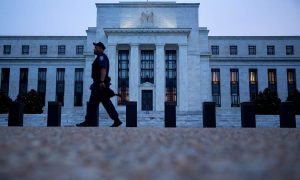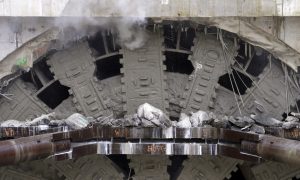Millions of Southern Californians are expected to take to the road this Labor Day weekend, spurred by record-low gas prices for the summer holiday.
According the Automobile Club of Southern California, Labor Day gas prices haven't been this low since 2004, when the TV show "Friends" had just aired its final episode, Britney Spears was marrying for the second time and a little website called Facebook launched — open only to college students.
While prices are slightly higher in Los Angeles than last week, AAA estimates this week's average of $2.74 a gallon is saving drivers $12 per fill-up over this time last year, and $22 per fill-up over 2012 prices.
The savings are great for consumers, but not so much for California roads, which depend on gas taxes to fund sorely needed repairs.
With gas prices dropping, cars becoming more fuel-efficient and the costs of construction quickly mounting, the taxes paid at the pumps have not kept pace. With inflation, it's leaving a backlog of $59 billion in deferred repairs for state highways and bridges.
When gas prices are as low as they now are, Californians put added wear on the roads by driving more, while paying less in gas taxes to offset that usage. Technically, the gas tax is really an excise tax. We've got an explainer below.
This week, the state Legislature ended its two-year session having made no progress on a plan to fund road repairs.
In June 2015. Gov. Jerry Brown convened a special legislative session to tackle the problem, but all ideas, including raising gas taxes, tying them to inflation and increasing vehicle use fees, met with gridlock among lawmakers.
California's complex gas tax
Savvy readers will remember that California's gas tax is actually mostly an excise tax, which is based on the volume of fuel purchased not the price. But, not so fast — the price of gas still matters.
The so-called fuel tax swap was enacted by the Legislature in 2010 to allow the state to divert sales tax funds into the general fund during a period of recession-era deficits. Because gas taxes are required to be used for road repairs, the Legislature changed part of the sales tax into an excise tax.
However, to keep the switch "revenue neutral" so as not to trigger a super-majority approval vote for the change, the California Board of Equalization must adjust the excise tax every year based on what it would have been had the levy been a gas sales tax.
In its most recent adjustment last February, the Board of Equalization cut the excise tax by 2.2 cents per gallon, and announced cuts to funding for road and transportation projects by $750 billion over the next five years due to the falling price of gas.
While the Legislature has not acted on a plan to address the funding shortage, the state is currently running a pilot program to charge drivers for each mile they drive instead of how much gas they buy.
I'm taking part in the pilot and tracking my miles with a device plugged into my car's computer. You can check out my series on the program to see how it's going.
Click here to view original web page at www.scpr.org












